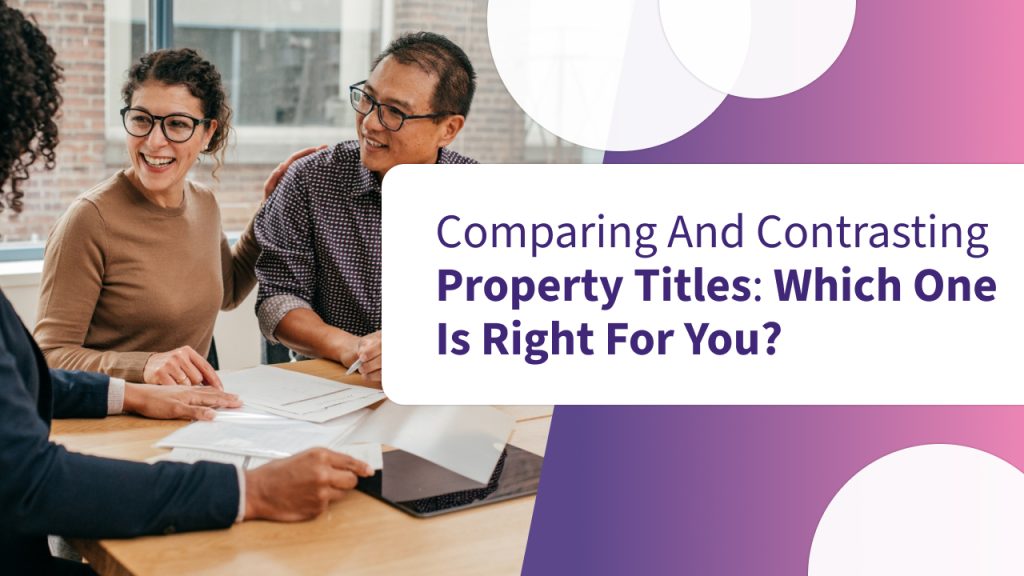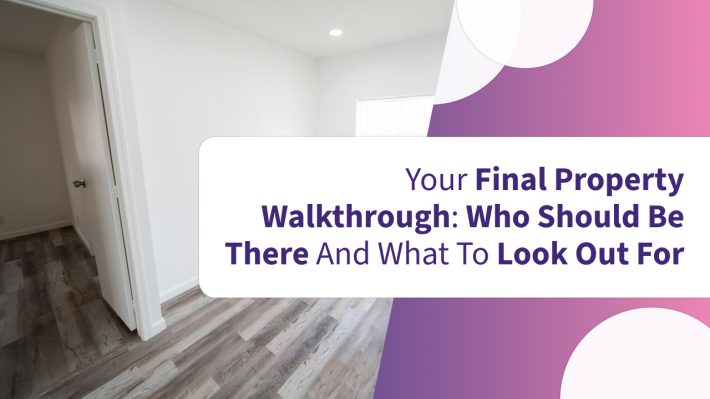Comparing And Contrasting Property Titles: Which One Is Right For You?

When it comes to buying a home or investing in property in Western Australia, understanding the different types of property strata titles is essential. Whether you’re a first-time buyer, an existing homeowner, a renter or an investment property owner, knowing the ins and outs of titles like strata, community, and freehold ‘Green’ titles can make a world of difference in your real estate journey.
So we at KDD Conveyancing aim to break down these titles in plain language to help you make informed decisions for your next property venture.
FREEHOLD TITLES: FULL OWNERSHIP WITH SERVICES
Freehold titles, sometimes referred to as ‘Green’ titles, represent the most common form of property ownership in WA. When you own a property with a freehold title, you own the land and everything on it completely. Here’s how green titles work:
1. Ownership: With a freehold title, you have absolute ownership of both the land and the building. You can make decisions about your property without needing approval from a body corporate or community committee authority.
2. Fees and Council Rates: Unlike most other types of title ownership, freehold title properties typically don’t involve ongoing fees for communal areas. You’re responsible for all maintenance and upkeep and are required to pay council rates and utility charges, which include power, gas, water and telecommunications.
3. Flexibility: You have the freedom to make changes to your property, such as renovating and/or extending it, as long as those changes are approved according to the building by-laws with the local council.
STRATA TITLES: SHARING RESPONSIBILITY WITH OTHERS
If you own an apartment, townhouse, or unit in a multi-unit complex, chances are it has a strata title. Sometimes called ‘Built Strata’, strata titles are commonly found in shared living spaces, such as apartment building complexes. Here’s how strata titles work:
1. Ownership: When you purchase a property with a strata title, you own the living space within the complex that you purchase. However, you also share ownership of common areas like gardens and parking areas with the fellow strata title owners. You may have exclusive use of the immediate land or structures surrounding your property, for example, a private balcony, courtyard or carport.
2. Strata Levies: Living in a strata-titled property generally means you’ll be responsible for paying regular levies or fees. These funds contribute to the maintenance and upkeep of shared spaces and common facilities, such as gyms, pools or BBQ areas, that require financial contributions from you and other shared strata title owners.
3. Rules and Regulations: Strata titles often have rules and regulations in place to maintain harmony among residents. These might include restrictions on pet ownership, noise levels, and property modifications. A Strata title-assigned committee may enforce rules about using communal areas at night and noise in the early morning. For pools, gyms and BBQ areas, there may be a “leave it how you found it” policy for cleaning and maintaining the facilities. More often than not, there are rules regarding the use of the bins and the disposal of rubbish ready for collection, where penalties can apply for wrongful disposal or overfilling your designated bins.
SURVEY-STRATA TITLES: LIVING SIDE BY SIDE
A survey-strata title can be described as a situation where properties occupy a space side-by-side within one lot (a sub-division) rather than as units built one on top of the other, as with a townhouse. Typically, survey-strata developments consist of up to five lots but can include more. They are considered a mix between the traditional strata title and green title schemes.
1. Ownership: As an owner-occupant, you will have full ownership of the building you live in, with the condition of sharing assets (common property) like driveways, gardens and on-site footpaths.
2. Strata Levies: As joint owners of common property on the lot, you may be required to contribute to maintenance and costs regularly; this can be monthly, quarterly or annually, depending on the terms stipulated in the scheme. Typical strata levies are expenses for gardening, plumbing, cleaning, property insurance and damage repairs.
3. Rules and Regulations: Compared to other schemes, survey-strata titles often have less restrictive regulations. Each owner of their property is required to keep within the boundaries of their assigned area and keep communal areas like driveways and footpaths clear at all times.
COMMUNITY TITLES: SHARING SPACES AND RESPONSIBILITIES
Community titles are somewhat similar to strata titles but are typically found in larger-scale developments. Community titles were only introduced into WA in 2021 and are often large complexes with a mix of residential, commercial and retail spaces. Community schemes are unique in that they allow for both building and land schemes to exist in the same development. This is important for staged developments and similar properties.
1. Ownership: When you own a property with a community title, you still have ownership of your individual property, just like with strata titles. However, the shared areas and facilities are collectively owned and managed by the community as a whole. There may be up to three ‘tiers’ within the community scheme.
2. Community Fees: Just like Strata, there are fees involved in community titles. These fees are used for maintaining shared amenities and areas like swimming pools, playgrounds, and common gardens. These are usually managed so that only owners who obtain the benefit of the amenity pay for it. For example, in a mixed residential/retail scheme, the owners of the residential scheme would pay for the maintenance of the resident’s elevator and the owners of the retail scheme would pay for the escalators and elevators within the retail space.
3. Community Management: The community typically has a management committee that oversees decisions related to the maintenance and improvement of communal spaces. As a property owner, you may have a say in these decisions. Community title schemes and subsidiaries assign their own community corporation (body corporate) and by-laws to help manage and enforce the rules.
LEASEHOLD STRATA AND SURVEY-STRATA TITLES: EXPIRATIONS AND LIFELONG RESIDENCY
Both leasehold strata and survey-strata schemes provide owners with the right to use land under a strata lease agreement for fixed terms ranging from 20 to 99 years. This type of scheme was set up in WA in 2020 to provide affordable housing options for those with limited means.
Leasehold strata agreements are common in retirement villages and communities where an occupant of a residence buys the apartment/unit outright and becomes a member of the owner’s corporation. Survey-strata and leasehold stratas often follow the same rules and restrictions as strata titles.
PURPLE TITLES: NOT INTENDED FOR INVESTMENT
While not common in today’s market, purple titles are not a prefered method of ownership if the intention of ownership is to provide capital security for loans. This is because the title is for an undivided share in a parcel of land. Purple titles refer to the colour assigned to property sketches to separate them from green titles.
By unanimous agreement of the title holders, purple titles in WA are increasingly being converted into strata title schemes.
Now that you have a basic understanding of these title types, how do they impact your ownership and offers in Western Australia?
CONSIDERING THE IMPACT ON OWNERSHIP AND OFFERS
1. Strata, Survey-Strata, Community and Leasehold Titles: These titles often come with rules and regulations that can affect your lifestyle and property management decisions. When making an offer on such properties, consider the ongoing fees and restrictions and factor them into your budget. Be mindful if you intend for your next of kin to inherit your property as a capital asset, as they will be required to continue to pay the fees associated with the property title.
2. Green Titles: With a Green title, you have more control and flexibility over your property. When making an offer on a freehold property, you’ll typically be dealing with the land and the dwelling, which means fewer restrictions but sole responsibility for ongoing costs.
Whatever your end goal is, whether you’re looking for a low-maintenance lifestyle, shared amenities, or full ownership and control, knowing the implications of each title type is crucial. Be sure to consult with real estate professionals and do your due diligence before making any property investment to ensure it aligns with your goals and budget.
HOW KDD CAN HELP YOU
KDD Conveyancing offers practical services for property settlements in Perth and Western Australia at a reasonable cost. If you’ve bought or sold a property and need conveyancing advice, please contact us; we’d love to chat and share our wisdom.
You can also follow our blog for more insightful articles on property conveyancing and discover new trends in the Australian real estate market.



